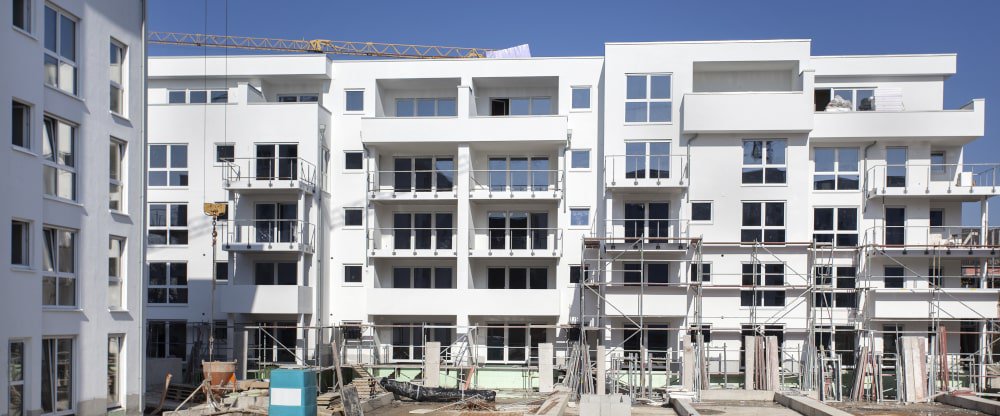What Is Happening to the Pre-Con Market in Toronto & the GTA in 2024?

In a world of rising home prices and stagnant wages, homebuyers often seek out ways to save on their property purchases. As a result, pre-construction condos and homes remain a popular option for many aspiring homeowners across the GTA. In this guide, we will examine the headwinds and catalysts that have shaped the pre-construction condo market in Toronto, both in 2024, and looking forward into 2025.
Overview of the Pre-Construction Market
In general, the pre-construction market operates in the following way:
- Homebuyers select their home based on a series of 3D renderings or floorplans that outline the expected look of the finished product. In some cases, they may even be able to customize certain elements of the home layout.
- The pre-construction price is locked in, and the sale is closed.
- The buyer will pay for a portion of the home (the downpayment ) while it is being built, usually in easy-to-manage instalments.
- Once construction is completed, and the homes hit the market, buyers still only have to pay the pre-construction price, which makes pre-construction homes an attractive investment (high potential for market appreciation)
Across the GTA, and especially within Toronto, the most common type of pre-construction properties are often condominiums. Condos are relatively cheap to build, compared to other property types and currently make up the majority of the pre-construction market.
Current Trends in Pre-Con Sales
As of June 2024, institutional investors made up 70% of all pre-construction buyers, with “mom-and-pop investors” a large portion of the remaining 30%. Because of this demographic shift, the prices of pre-con condos had been steadily climbing over the past couple of years. This unfortunately priced many individual homebuyers out of the pre-con market, and further alienated aspiring buyers from completed units, as the once affordable condo prices were driven up past reasonable limits in order to ensure that the investors were making a large enough profit. Given these factors, it is no surprise that 2024 marked the lowest condo pre-sale rate of the past 15 years. By May 2024, less than 50% of all new condo units had been successfully sold pre-construction.
As a result, pre-construction sales have taken an alarming dive. While this may be bad news for the condo market, it is good news for aspiring homeowners who may soon be able to afford pre-construction properties once more, if the market corrects itself. While it is unclear what a market correction would look like, and whether or not it will happen (given recent rate cuts), the Toronto pre-con market may soon provide an undervalued opportunity.
Challenges and Opportunities in 2024
One of the biggest challenges facing the pre-con industry as a whole is the rapid decline in condominium sales. This past July, Toronto developers saw condo sales drop by over 57% since last year, marking one of the slowest seasons in recent history.
Another interesting consideration is the type of condos being built and sold. Traditionally, pre-construction investors have preferred smaller condos to larger condos. While large condos are more popular among end-users (the eventual inhabitants), small condos produce higher yields for investors. Over the past year, many investors have lost conviction in the profitability of condo investments, especially given flat prices in recent years.
However, there has been an uptick in demand for large pre-con condos, which may indicate that individual homebuyers are once again turning to the pre-con market. This could spell out an exciting opportunity for homeowners who have otherwise been priced out of the market, especially with rates expected to continue dropping.
Regardless of market conditions, the best way to get involved in the GTA real estate scene is to come prepared. If you are looking to buy a home in the near future, getting your credit checked, debts settled, and mortgage pre-approved , can make all the difference in your application. Contact Clover Mortgage today to get started with a free consultation, and learn more!
FAQ
Will house prices go up in 2025 in Ontario?
Pre-construction detached homes in Ontario saw flat prices in 2024, and it is entirely possible that this trend will continue in 2025. Outside of the pre-construction sphere, however, there is still fundamentally a supply and demand imbalance in the Canadian market. Until there are enough homes to keep up with the rising population of the GTA, in the formats that are being demanded, prices on attractive properties will continue to rise.
Why are so many condos being built in Toronto?
The main driver behind condo construction comes down to the GTA’s lack of housing supply in relation to rapidly rising demand. Over the past couple of years, the population of Toronto, and the GTA at large, has grown exponentially — mainly driven by immigration . Because of the limited space available in an already dense GTA, high-rise condos have long been heralded as the most feasible way to build many new units of housing at reasonable prices. Condos often are cheaper and require smaller down payments than town houses or detached homes. Additionally, they are easier to rent out than larger homes, making them appealing to investors.
Are condos a good investment in Toronto?
While condos certainly were a good investment for many years, recently we have seen sale rates decline sharply, and market prices stagnate. While condos are still a great investment for homebuyers looking to live within the unit, and pay less than for a larger home, they may not be the best investment for institutional investors relying on rental income — at least not currently. This, of course, can change over the next few years, but the market should be closely monitored.





